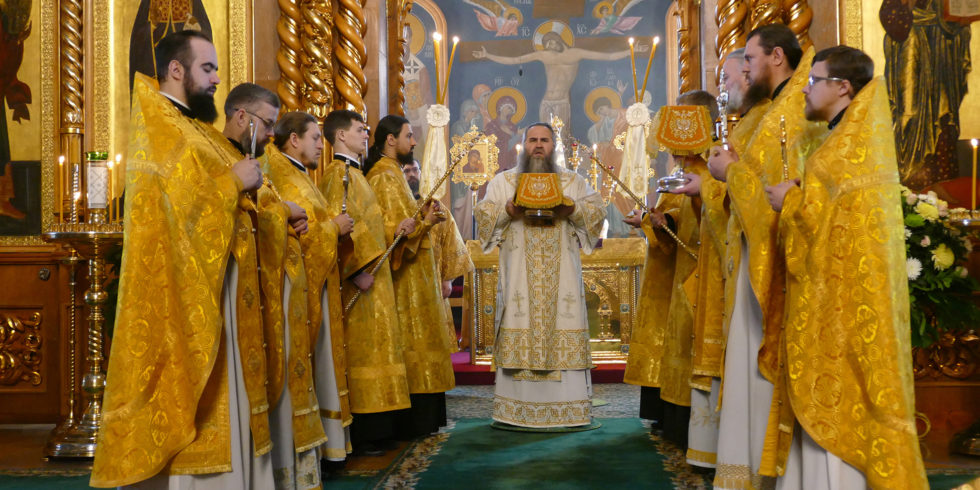



Remembrance day of Hegumenia Alexandra (Trakovskaya)
The memory of Hegumenia Alexandra (Trakovskaya) was prayerfully commemorated at the Seraphim-Diveyevo monastery today. On the day of her repose, the memorial service, or Panikhida, was served at the Transfiguration Cathedral followed by a memorial litya at matushka Alexandra’s grave beside the Trinity Cathedral.
Hegumenia Alexandra headed the monastery from 1904 till 1927. It was the period of prosperity for the Seraphim-Diveyevo monastery. By 1917, 270 nuns and 1474 novices resided at the monastery. Transfiguration Cathedral and the metochion churches in Moscow, Petergof, and Kharkov were built during those years.
After the monastery closed down in 1927, the efforts of matushka Alexandra allowed the Diveyevo monastery to continue its spiritual life in the secular world. Hegumenia Alexandra settled down in Murom and the sisters of the monastery came to reside nearby with the schema nuns, nuns, and the novices among them. Matushka hegumenia kept the Diveyevo relics in her house including the icons of the Mother of God “Tenderness” and father Seraphim, the venerable saint’s personal possessions, and the precious liturgical items. It was truly a miracle that the authorities were aware of that but they did not confiscate them letting Hegumenia Alexandra go after the interrogation. Matushka peacefully resided in Murom until her death in 1942.
In 2002, the remains of Hegumenia Alexandra were discovered at the Murom’s cemetery, transferred to Diveyevo, and buried in a shrine next to Hegumenia Maria (Ushakova) beside the altar wall of the Trinity Cathedral.
At today’s services in the Seraphim-Diveyevo monastery, Prot. John Gusev (1884-1915) was remembered together with Hegumenia Alexandra. His birthday was on February 3. Protopresbyter John was a senior priest of the Seraphim-Diveyevo monastery beginning from 1884. Two of his sons, priests Mikhail and John, also served at the Seraphim-Diveyevo monastery. During Soviet times, the brothers were subject to repressions and executed for their faith.


